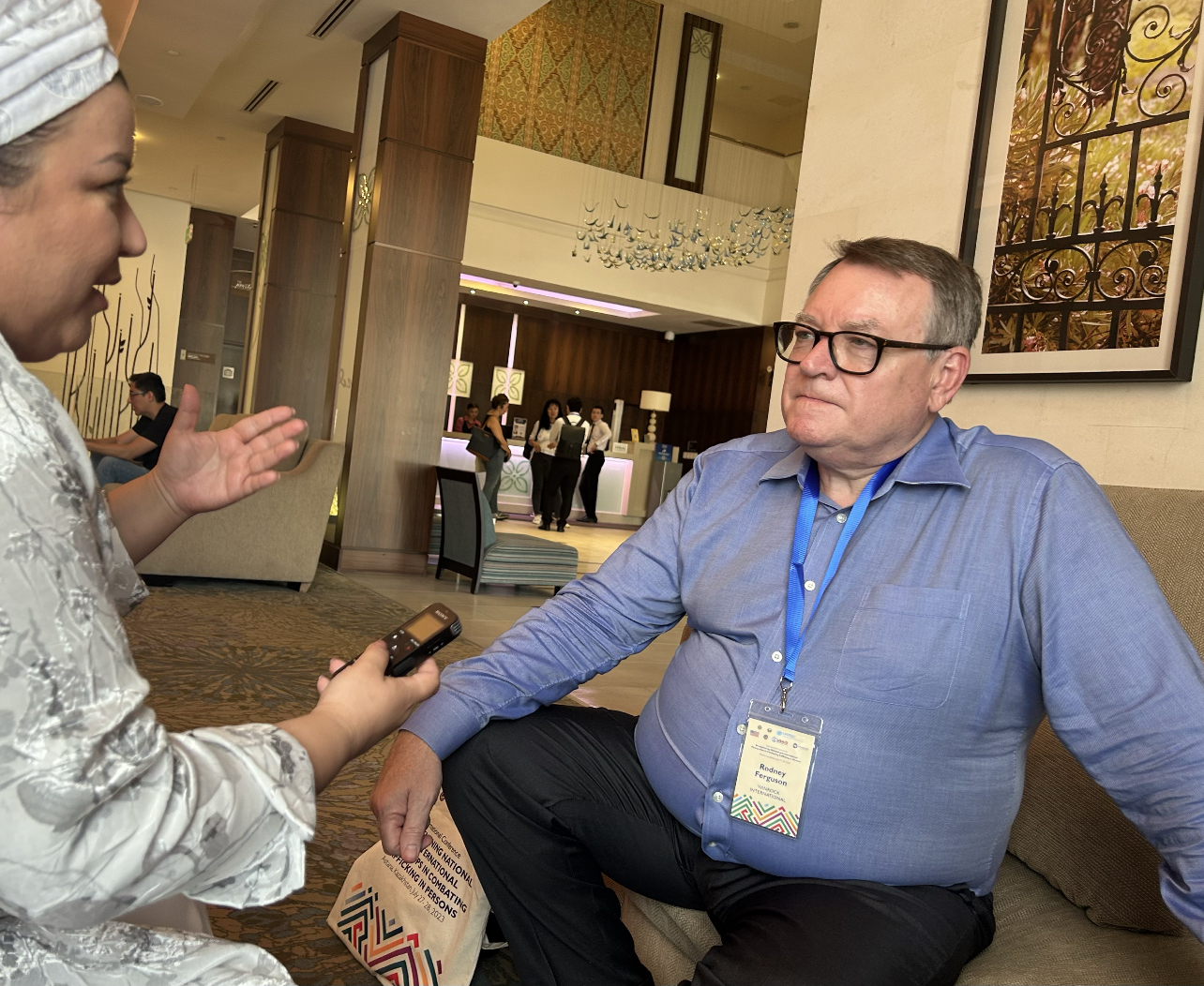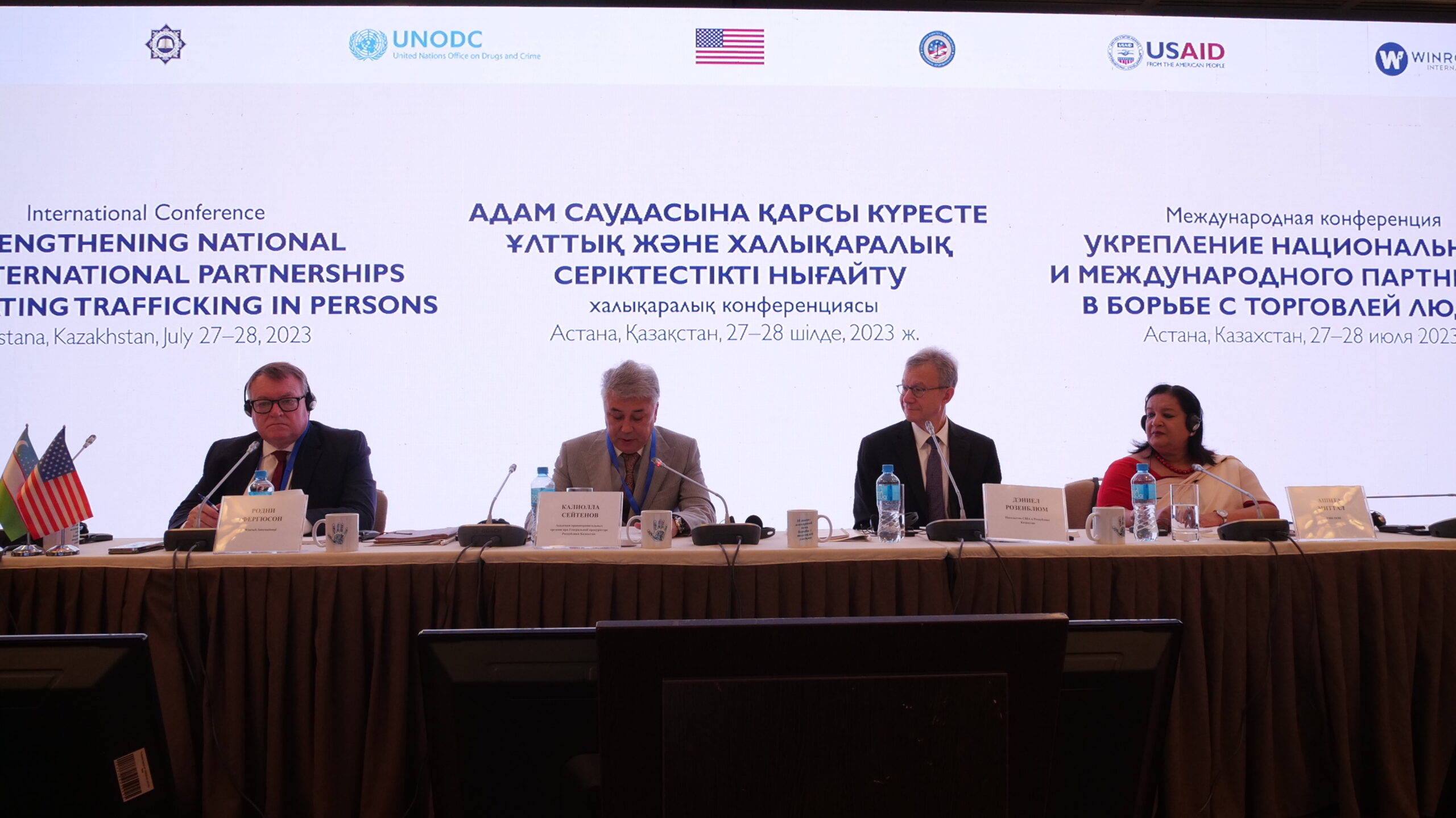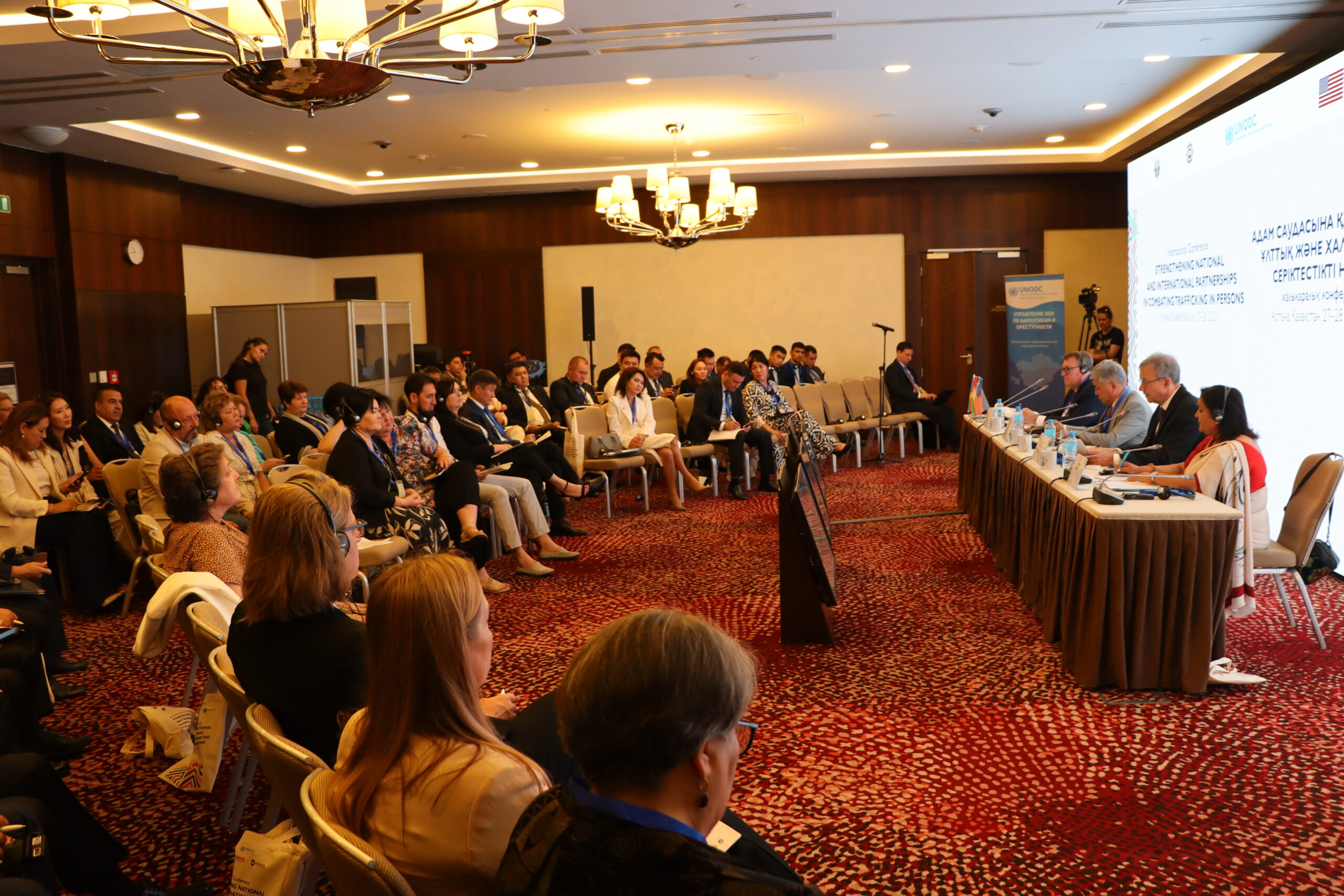ASTANA — Astana hosted an international conference to strengthen national and international partnerships in the fight against human trafficking marking the World Day Against Human Trafficking on July 30. Rodney Ferguson, President and CEO of nonprofit organization Winrock International, discussed the conference’s key takeaways, Kazakhstan’s progress in combating human trafficking, and Central Asia’s challenges when promoting safe migration in an interview with The Astana Times.

Rodney Ferguson, CEO of Winrock International on Kazakhstan’s progress in combatting human trafficking, and Central Asia’s challenges when promoting safe migration. Photo credit: The Astana Times.
According to last year’s United Nations Office on Drugs and Crime (UNODC) Global Report on Trafficking in Persons, the most striking trend across the Central Asian region was a drop in recorded incidents of trafficking in persons and convictions between 2017 and 2020. In 2020, there was a significant decline in criminal investigations and convictions in the region, with a substantial reduction in the recorded victims of sexual exploitation. This indicates that crimes related to human trafficking have become more latent, making it challenging to detect and guide victims to life-saving aid.
Ferguson said such a state of affairs necessitates collaboration because no single organization can have a major impact on trafficking on its own. The main takeaway from the recent conference, he said, is the connections made among organizations from Central Asia, as well as the realization that a multilateral and intergovernmental approach is “overwhelmingly the most important factor in combating trafficking here or anywhere in the world.”
In recent years, Central Asian governments have demonstrated a strong commitment to combating human trafficking by establishing a solid political course of action and improving the regulatory framework, building the capacity of law enforcement and judicial authorities to deal with cases of human trafficking.

Ferguson said that a multilateral and intergovernmental approach is “overwhelmingly the most important factor in combating trafficking here or anywhere in the world.” Photo credit: UNODC.
In her column, Vice Minister of Justice of Kazakhstan Botagoz Zhakselekova said that trafficking-related crimes have notably dropped in Kazakhstan, decreasing from 304 cases in 2017 to 111 in 2020.
“Kazakhstan is currently in the process of adopting a separate law on combating human trafficking. This legislation aims to align existing definitions with international standards, establish authorized bodies, introduce risk assessments, and provide comprehensive assistance to victims,” Zhakselekova wrote.
“We are optimistic that the legislation will pass. It would go a long way to helping to formalize the Kazakh government’s approach to trafficking,” Ferguson said.
According to him, Kazakhstan is in the second tier in the ranking of the human trafficking issue. He explained that the countries are graded in three tiers with third being the worst.
“Third tier are countries with identified and rampant opportunities for trafficking with very little government participation, and frankly, not much concern for the problem. Tier two countries have identified the problem and are working on solutions. Kazakhstan is in this tier. But with continued effort and legislation, there is every reason to believe it could upgrade to tier one that includes countries with strong laws,” he said.

On 27 July in the observance of the World Day against Trafficking in Persons (TIP) a two-day international conference on was kicked off in Astana. Photo credit: UNODC
Human trafficking trends in the region and worldwide demonstrate that women and girls are disproportionately affected, accounting for the majority of victims in Central Asia. In 2020, women comprised 48% of the victims, girls – 16%, compared to 29% of men and 7% of boys, with sexual exploitation being the most common form of human trafficking (76%).
“Women are more susceptible to trafficking that involves sexual exploitation. Unfortunately, children are also vulnerable to this,” Ferguson said.
But there are also those trafficking victims that are used for forced labor.
“It has different characteristics, depending on where you are. We know that in Central Asia, many people are brought to Russia. But, in general, I would say that everyone is a potential victim, every demographic, every age and sex. Everyone needs to be aware of the risks and the dangers that are out there,” Ferguson said.
He warned people should be skeptical about offers of free accommodation and transportation because these offers are frequently made by recruiters who operate on behalf of human traffickers. Other possible risks are circumstances involving international migration and the theft of identification papers.
“By taking your documents, traffickers control your movements, because without documents you are essentially a stateless person. Victims without documents violate the law not just in Central Asia but worldwide. They are often jailed and detained indefinitely because they do not have papers and cannot prove their citizenship,” he said.
Ferguson said the conference participants discussed the creation of databases of potentially trafficked people so that they are not immediately assumed to have broken laws or be criminals, and how Central Asian countries could cooperate.
He also talked about projects the Winrock International conducts in Central Asia and specifically in Kazakhstan, including Safe Migration in Central Asia (SMICA), funded by the United States Agency for International Development, and the Kazakhstan Actions Against Trafficking in Children (KATCH), funded by the United States Department of State.
“SMICA is a comprehensive program designed to look at all the elements of trafficking, including strengthening policy training and helping raise awareness. The KATCH project is focused on helping the children of migrants. This is not necessarily children who were trafficked, but children who suffer the consequences of their parents being trafficked. The project’s goal is to recognize that the children of trafficked victims deal with unique problems,” Ferguson said.

